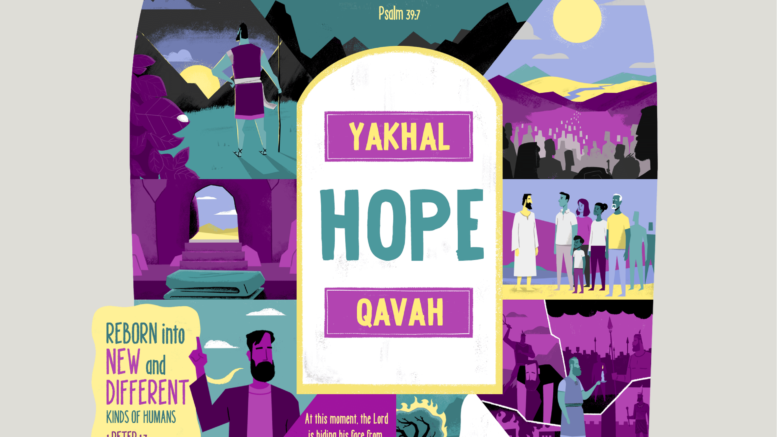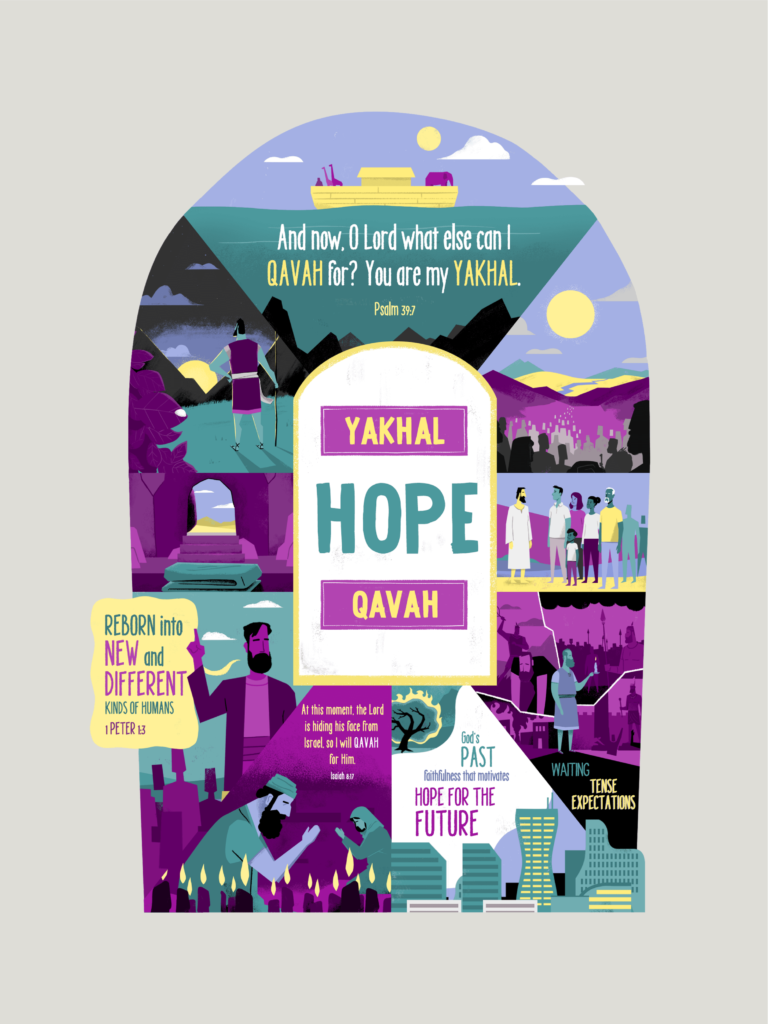from Bible Project
Four key biblical themes came to their fulfillment in the arrival of Jesus: Peace, Hope, Joy, and Love and our relationship to God through these.
HOPE
So let’s say you want to describe the feeling of anticipating a future that’s better than the present. You might be giddy or excited or maybe unsure, but most of us know that experience. We call it “hope.” It’s a state of anticipation, and it’s crucial for healthy human existence, and it’s a really important concept in the Bible. In fact, there are many words for “hope” in the ancient languages of the Bible, and they’re all fascinating.
In the Old Testament, there are two main Hebrew words translated as “hope.” The first is yakhal, which means simply “to wait for.” Like in the story of Noah and the ark, as the flood waters recede, Noah had to yakhal for weeks.
The other Hebrew word is qavah, which also means “to wait.” It’s related to the Hebrew word qav, which means “cord.” When you pull a qav tight, you produce a state of tension until there’s release. That’s qavah: the feeling of tension and expectation while you wait for something to happen. The prophet Isaiah depicts God as a farmer who plants vines and qavahs for good grapes.2 Or the prophet Micah talks about farmers who both3 qavah and yakhal for morning dew to give moisture to the land.
Read the Scripture Sheet for more HERE
CLICK ON POSTER FOR HIGH RES PNG FROM BIBLE PROJECT






